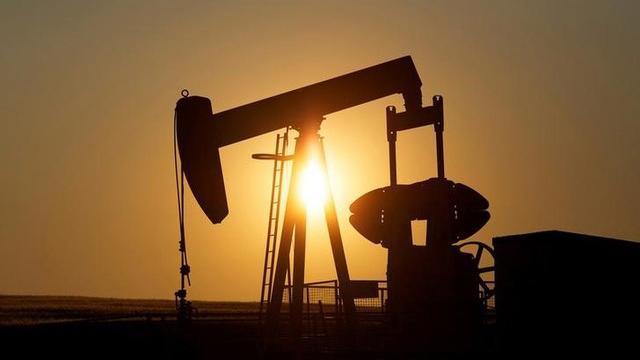Oil hovers near 6-month high as US stockpile build counters supply fears
NEW YORK, April 24 (Reuters) - Oil prices steadied on Wednesday near six-month highs after data that showed U.S. stockpiles rose to their highest since October 2017, countering fears of tight supply resulting from OPEC output cuts and U.S. sanctions on Venezuela and Iran.
Brent crude futures fell 17 cents to $74.34 a barrel by 11:00 a.m. EDT (1500 GMT). The international benchmark reached $74.73 a barrel on Tuesday, highest since Nov. 1.
U.S. West Texas Intermediate crude futures fell 53 cents to $65.77 a barrel. The contract hit $66.60 a barrel on Tuesday, highest since Oct. 31.
U.S. crude inventories rose 5.5 million barrels last week, the Energy Information Administration said, far more than analysts' forecast of an increase of 1.3 million barrels.
However, gasoline stocks fell by 2.1 million barrels, a larger-than-anticipated drop.
"What we're looking at is a headline number bearish on crude but supported somewhat by the gasoline number," said Phil Flynn, an analyst at Price Futures Group in Chicago. "Because of the sanctions that are coming down on Iran and the fact that there's going to be no waivers, it makes this number look more bullish."
Crude futures and prices for spot delivery rallied after the United States said on Monday it would end all exemptions for sanctions against Iran, demanding countries halt oil imports from Tehran from May or face punitive action. The move raised worries about tighter global oil supplies.
The United States must be prepared for consequences if it tries to stop Iran from selling oil and using the Strait of Hormuz, Iran's Foreign Minister Mohammad Javad Zarif warned on Wednesday.
China, Iran's biggest oil customer, has formally complained about the move.
The spot price surge put the Brent forward curve into steep backwardation, in which prices for later delivery are cheaper than for prompt dispatch.
The United States has said it saw Saudi Arabia as a partner to balance oil markets. But some analysts said the market remained fundamentally bullish.
"The factors that could lead to higher prices are overwhelming," said Carsten Fritsch at Commerzbank, adding a push towards $80 a barrel was more likely than a fall below $70.
Signaling no immediate action to counteract missing Iranian barrels, Saudi Energy Minister Khalid al-Falih said on Wednesday that his country's production in May would not vary greatly from previous months.
"Inventories are actually continuing to rise despite what is happening in Venezuela and despite the tightening of sanctions on Iran. I don't see the need to do anything immediately," Falih said.
CLICK HERE TO GET THE FOX BUSINESS APP
He added that Saudi Arabia aimed to stick to its output quota fixed in a deal by the Organization of the Petroleum Exporting Countries, Russia and others, but that June numbers would be determined depending on customers' needs.
Meanwhile, crude output in the United States, which turned into the world's top producer last year, last week edged back to its record high at 12.2 million barrels per day, EIA data showed.
(Additional reporting by Shadia Nasralla in London and Henning Gloystein in Singapore Editing by Marguerita Choy and Elaine Hardcastle)




















